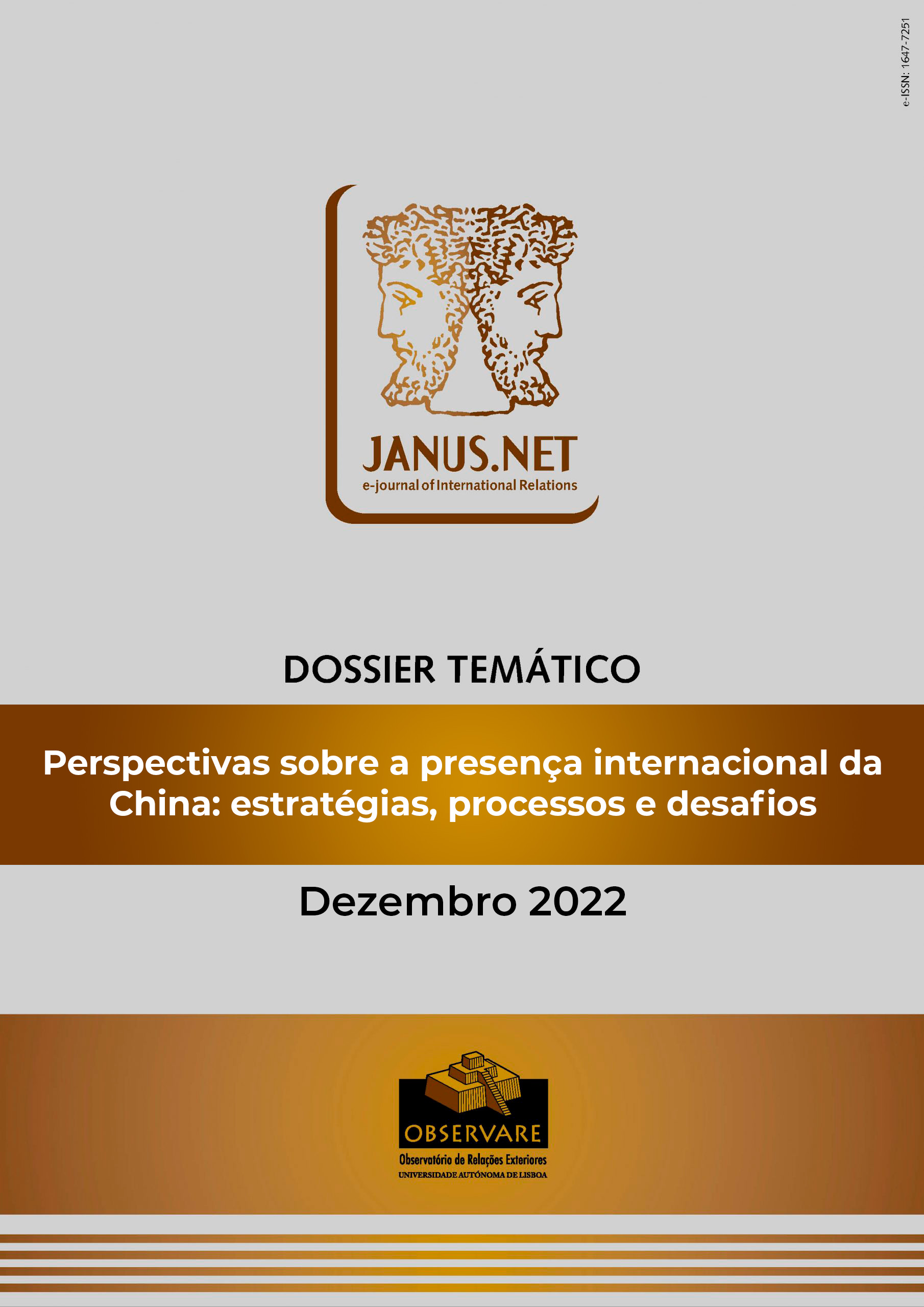Os pequenos estados, apesar dos seus défices de poder, são capazes de influenciar os grandes
estados. Este artigo explora como Portugal parece ter selecionado estratégias para modular
mas melhorar as suas relações com a China durante a pandemia de Covid19. De acordo com
a Teoria das Negociações Assimétricas (TAN) avançada por Habeeb, os pequenos estados
adotam estratégias suaves quando têm altos níveis de compromisso, piores alternativas
disponíveis, e um baixo grau de controlo. Durante a pandemia, um aumento dos défices levou
o governo português a procurar expandir as exportações, atrair investimento, e melhorar a
sua competitividade. Os autores constatam que Portugal tem demonstrado comportamentos
diferentes no que respeita ao compromisso, à procura de alternativas e ao exercício do
controlo em questões relacionadas com investimento, exportação e competitividade. Portugal
tem utilizado de forma flexível estratégias brandas em relação à China durante a pandemia,
ao mesmo tempo que reage à intervenção externa dos EUA e mantém a conformidade interna
dentro da UE. Com estas estratégias, Portugal tem defendido com sucesso, e sem conflitos,
os seus interesses, mantido o seu estatuto na UE, e limitado a intensidade da concorrência
entre os EUA e a China em relação a Portugal.
Portuguese strategies towards China during the Covid19 Pandemic.
Instructor of Department of Europe, Xi’an International Studies University (China). Ph.D.
candidate in International Politics and Conflict Resolution which is offered by the Faculty of
Economics in collaboration with the Centre for Social Studies of the University of Coimbra. She
holds a Master’s in Portuguese Literature from the University of Coimbra, as well as a Bachelor of
Portuguese Language and Culture from Xi’an International Studies University. She has acted as a
lecturer in the undergraduate program of the Portuguese of School of Occidental Studies of 西安外
国语大学 Xi’an International Studies University.
President of the Macau Scientific and Cultural Centre. Associate Professor of International
Relations with tenure, accredited at the School of Economics of the University of Coimbra
(Portugal), where she established the course “China and the Portuguese-speaking Countries in
World Trade”. Former head of the International Relations department and coordinator of the
School of Economics International Office at the same university. Holds a Ph.D. degree from the
School of Oriental and African Studies – University of London, a Master degree from the Institute
of Higher European Studies – University of Strasbourg, and a Bachelor degree from the Institute
of Social and Political Sciences – University of Lisbon. She was a Post-doctorate scholar at the
Institute of Political Studies of the Portuguese Catholic University of Lisbon and visiting professor
at the University of Macau, the University of Salamanca and the University of Lyon. She was a
board member of the European Association for Chinese Studies, and the organizer of the 2014
EACS conference in Coimbra; and president of the International Relations Section and member of
the board of the Portuguese Political Science Association. Principal Investigator at the University
of Coimbra on a research project on the role of Macau in China´s relations with the Portuguese
speaking-countries, funded by the Portuguese national funding agency for Science, Research and
Technology; and on a project on South-South Cooperation for the Europe China Research and
Advice Network, supported by the European External Action Service. Auditor of the Portuguese
National Defense Institute. Co-founder of the consulting company ChinaLink, and of the
Observatory for China in Portugal. Author of China and the Macau Negotiations, 1986-
1999 (HKUP) and China’s New Silk Road: An Emerging World Order (Routledge), as well as other
publications available for consultation at: www.uc.pt/feuc/carmen
Resumo
Palavras-chave
Como citar este artigo
Xiaouying, Hou; Mendes, Carmen Amado (2022). Portuguese Strategies towards China during
the Covid19 Pandemic. Janus.net, e-journal of international relations. VOL13 N2, TD1 –
Thematic dossier “Perspectives on China’s International Presence: Strategies, Processes and
Challenges”, December 2022. Consulted [online] on date of the last view,
https://doi.org/10.26619/1647-7251.DT22.5
Artigo recebido em 19 Junho, 2022 e aceite para publicação em 25 Junho, 2022















